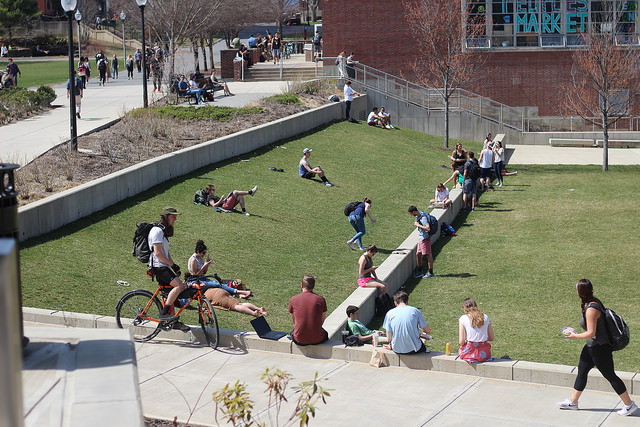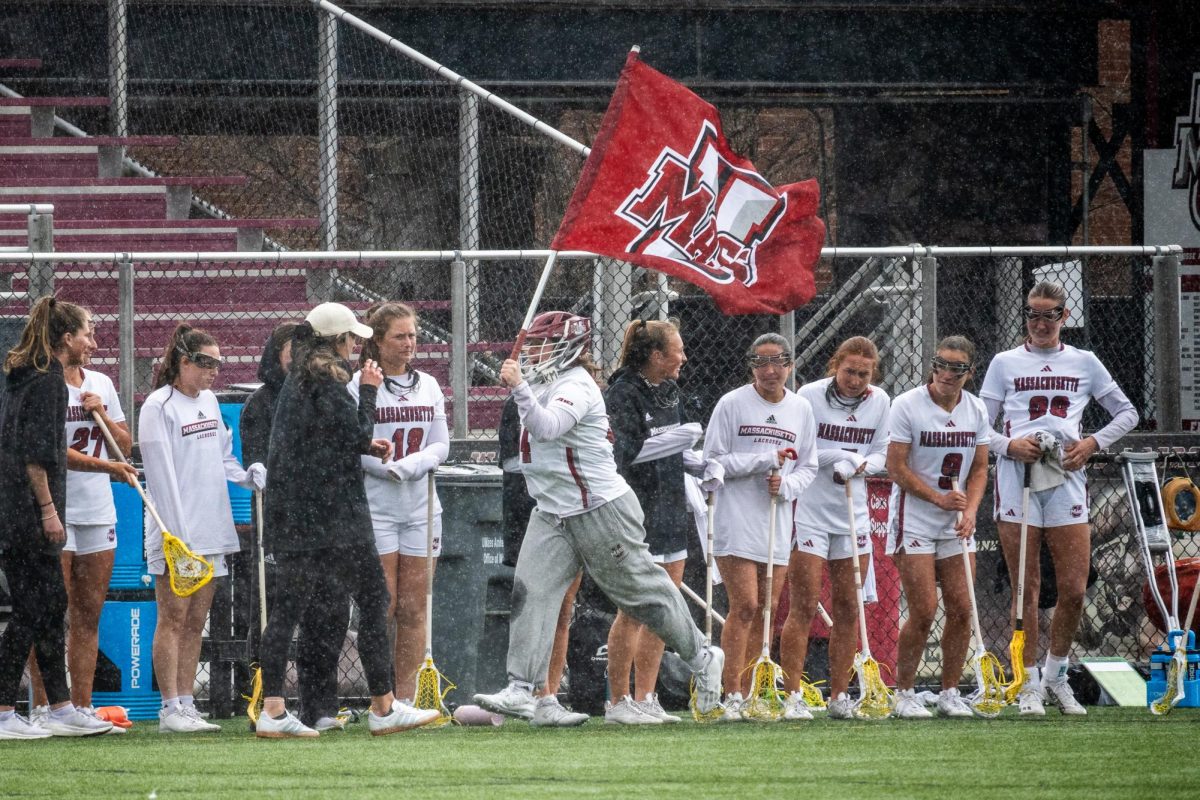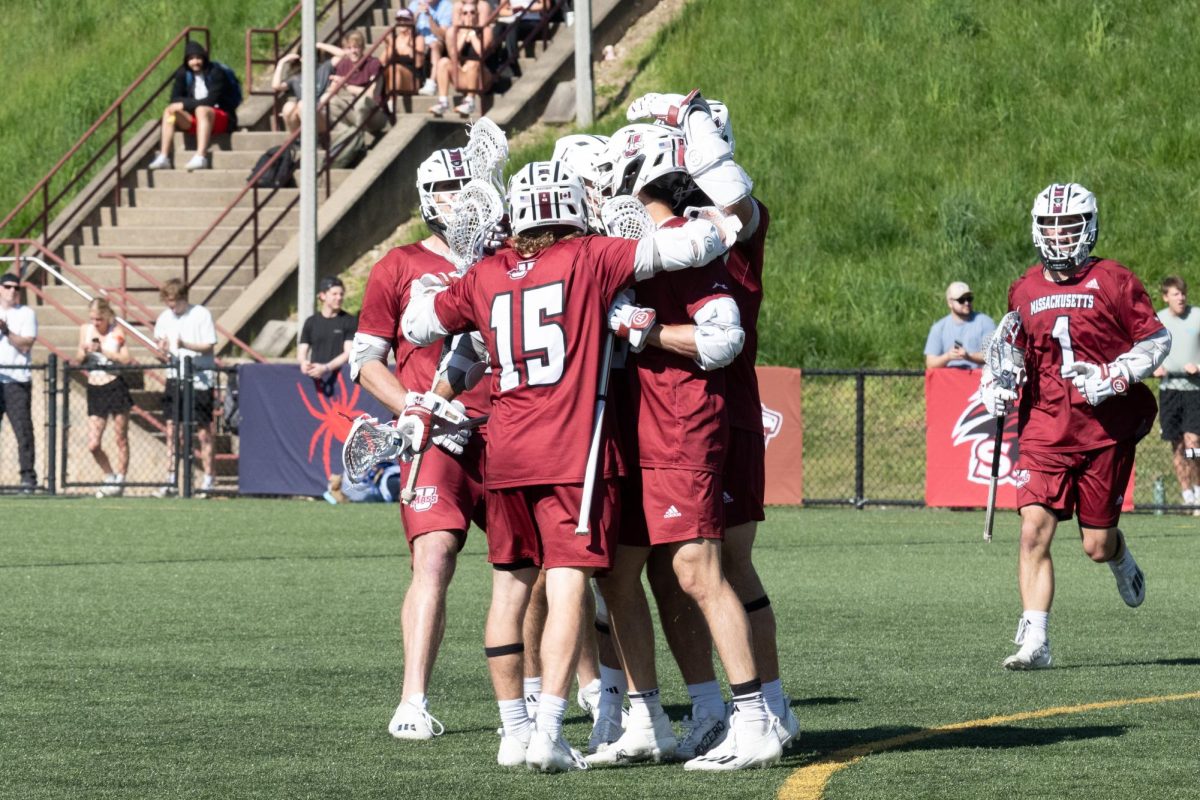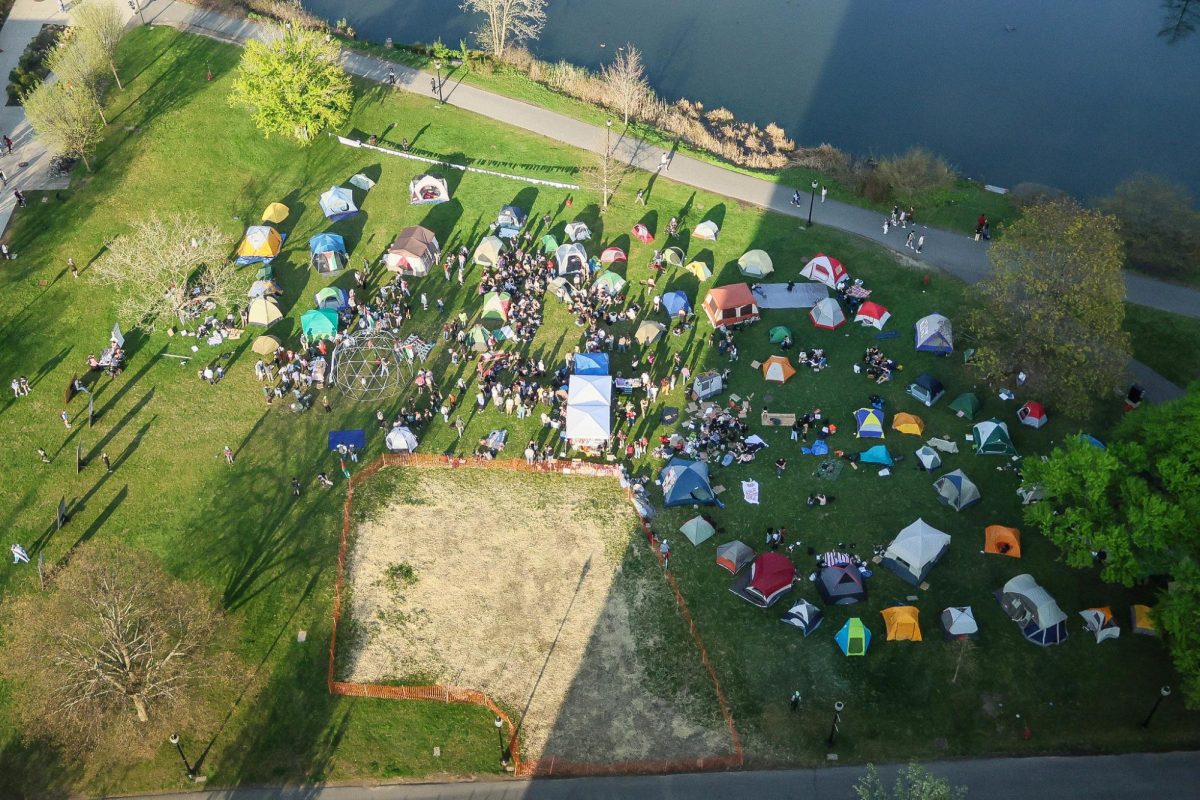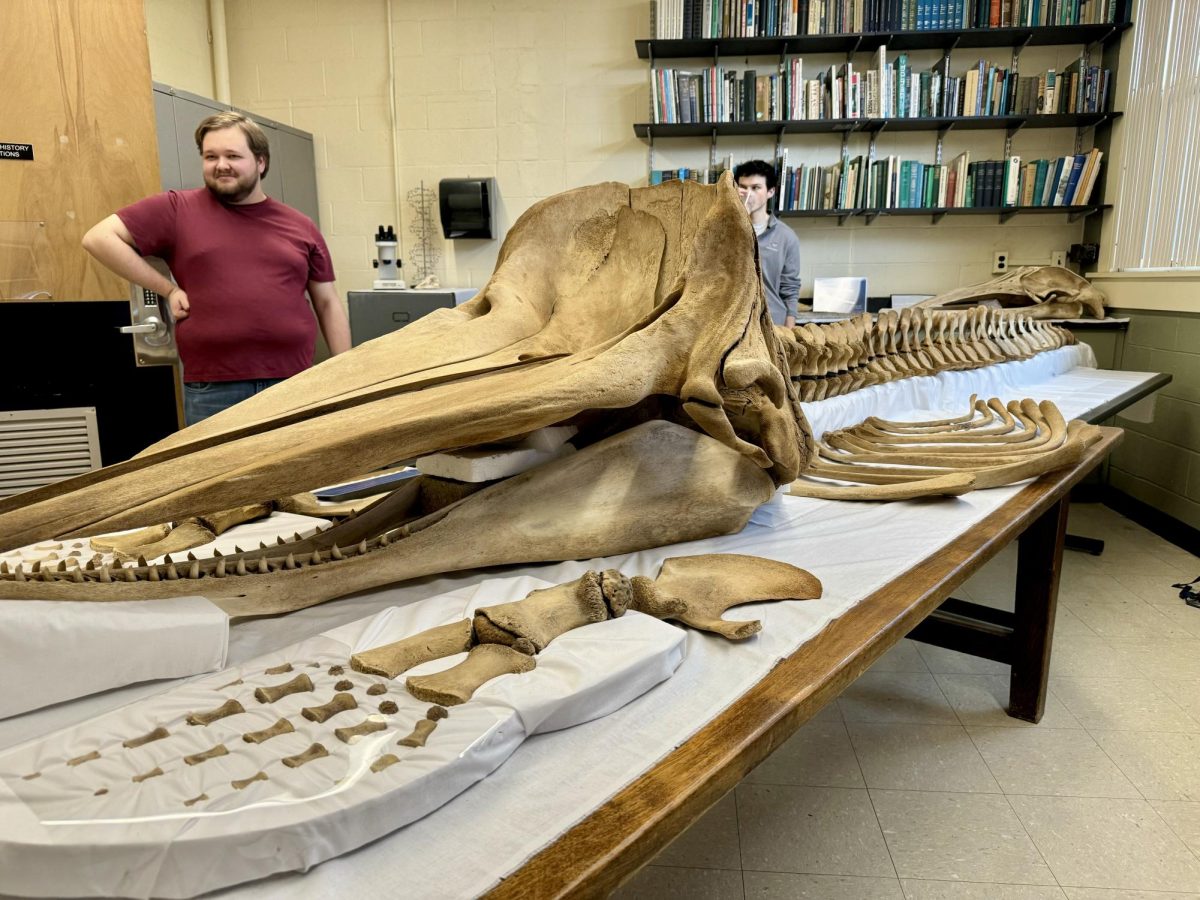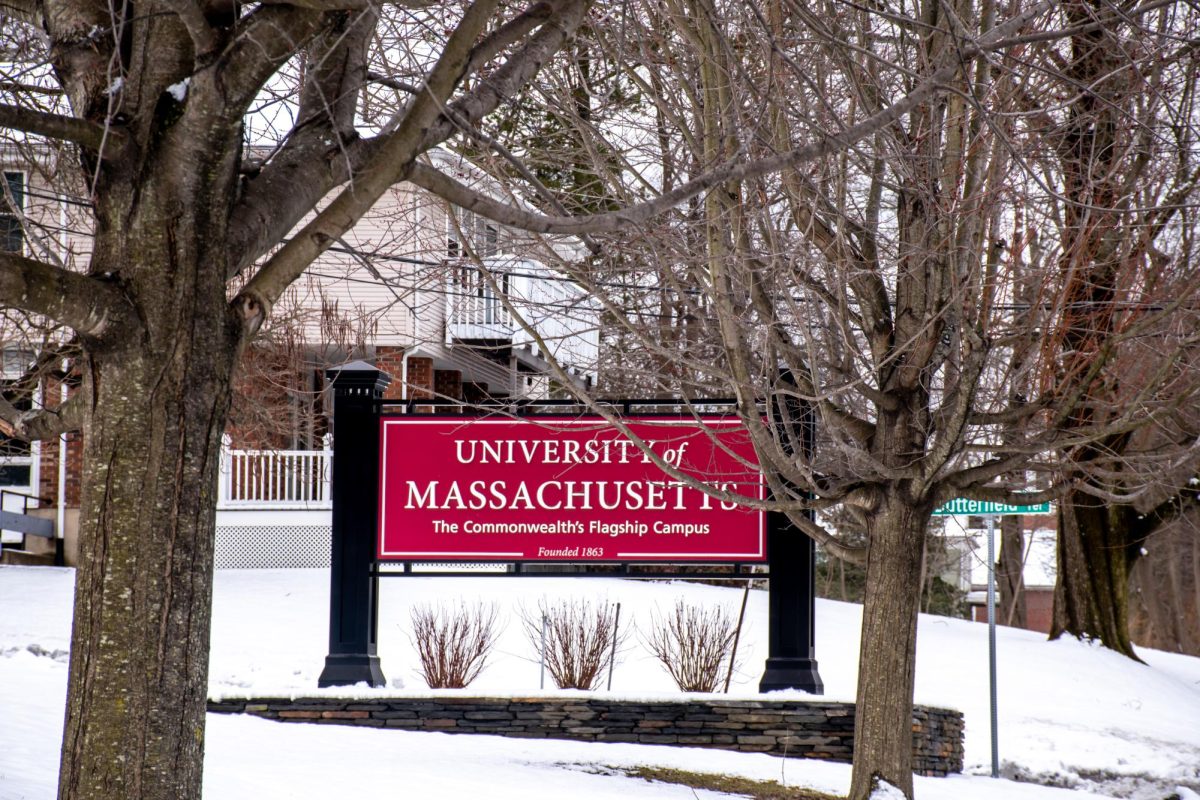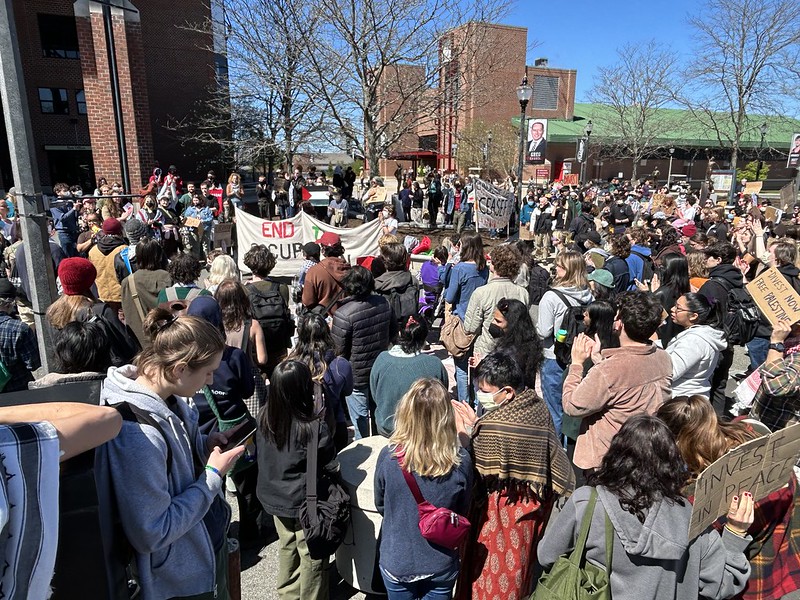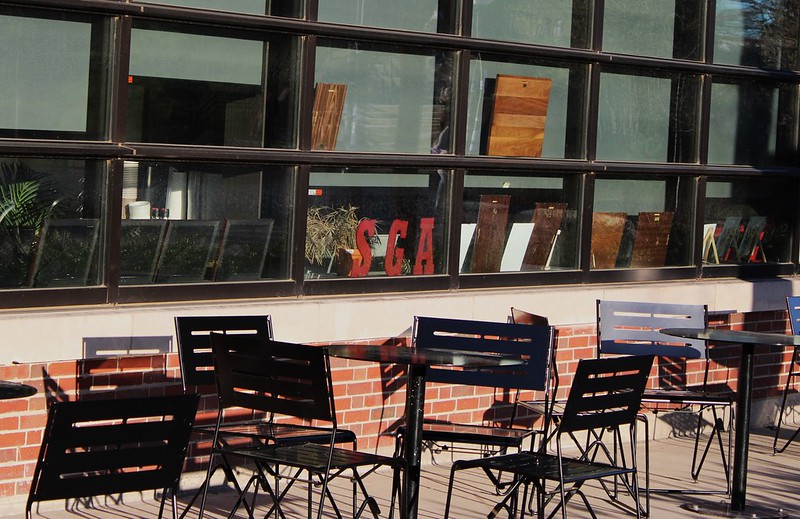Paul Chappell visited the University of Massachusetts on Thursday to discuss the benefits of peace literacy in education.
Chappell is a West Point graduate and Iraq War veteran who developed peace literacy after his duration in the military. He is currently the peace literacy and leadership director for the Nuclear Age Peace Foundation, which hopes to engage peace literacy in school curricula.
Chappell helped the audience understand what he believes humans must have to live a healthy life by utilizing nine non-physical human needs and the trauma people experience without them.
Chappell delivered his speech about the importance of peace literacy in the W.E.B. Du Bois Library to teachers, students and veterans, who were interested in how to incorporate peace within their lives and education.
According to a description of the event on the UMass website, Chappell offers the concept of peace literacy “as a new paradigm to better understand not just peace and war, but also the art of living and what it means to be human.”
Chappell introduced himself by talking about how he alienated himself as a student in Alabama growing up because his father was half Black and half white, and his mother was Korean. He described himself as growing up in a violent household, which began his experience in discovering answers for dealing with peace and trauma. After his time in the Army, he developed peace literacy which helped address some of these problems he dealt with throughout his life.
Chappell asked the audience, “What is more important: food, or purpose and meaning?” and began to explain how without purpose and meaning, people feel meaningless and nihilistic.
Joseph Erobha, a UMass graduate student, felt Chappell was effective at connecting his personal experiences to the concept of peace.
Erobha said Chappell “thinks about peace in a different way, points to personal problems and ailments and connects it [to] wider issues with a whole new understanding.”
Purpose and meaning is one of the nine examples of the non-physical human needs Chappell addressed. Another example of a non-physical human need is ‘explanations,’ because without explanations, people have disillusionment and a ruthless worldview. To Chappell, this need is important because in people’s lives, if they don’t have an accurate explanation, they’ll create an inaccurate one.
Chappell said “the vast majority of human conflict comes from people being disrespected.” He offered the audience peace literacy skills all cultures would accept, including listening respectfully. This implies consent and empathy, and to lead by example and don’t be hypocritical.
After Chappell’s speech, he answered questions from the audience about their interests in peace literacy or their experiences. When one audience member asked how Chappell transitioned from his time in the Iraq War to studying peace, Chappell described the rage he experienced and explained how he developed the frameworks to deal with and overcome these traumas.
Chappell hopes his organization can implement peace literacy in curriculums throughout the nation because, to Chappell, the nation needs the education now more than ever. Chappell believes providing these certain tools for students can promote the greater good for the community.
“When you deny people literacy and education, you deny them power,” Chappell said.
Nicholas Ponzio can be reached at [email protected].

